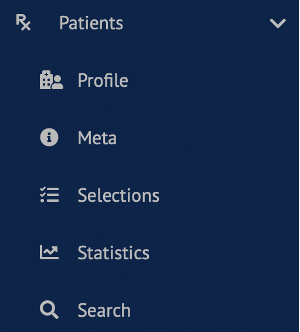The Pharmacy Game Newsletter

This month, during the Pharmacy Game at the University of Groningen, a new “patient module” is being tested. This addition to the existing software of pharmacygame.education game platform, will allow the game management team to add patients and their medical dossiers. Patients can be characterized with various meta parameters such as, name, gender, age, profession, character trades, social background, assigned physician(s), health condition/ diagnoses, prescriptions or measurements. Each patient can also be related to the existing “casuistry module”, where the patient cases are organized.

Claudia Dantuma, the course coordination in Groningen shared her first impressions:
We use the patient module for enhancing students’ communication skills and train them to reflect pharmaceutical expertise.
Some technical information
With this module we can follow patients for longer time by setting up a profile for each patient. Using the meta data options we can link a prescription to the patient, but also to another physician or specialist e.g., oncologist, cardiologist or pomologist. We really like that we can also add clinical measurements and the related reference data for the patients. The diagnosis for the patients is given with International Classification of Primary Care (ICPC) codes. We can make selections to define different patients, such as diabetic patients, cardiovascular patients, HIV patients, euthanasia patients or a polypharmacy patient. Talking about the patients, the option to create aliases with different names and age is quite useful when creating a new game.
About the users
When students are longed in their pharmacy profiles, they can find there the prescriptions. Then, student work on those prescriptions and fill in a digital form, informing about the best way to handle the prescriptions for the given patients. Beside the students, we, the game management team, use this module to organize the prescriptions, patients and cases for the actors. In the menu statistics we can see how many prescriptions the students have to process each day and which patients are involved that day. The data contained in this module is also of use for the “general practitioner” in the game, when needed to answer students’ questions related to the prescriptions.
This game, we are using the patient module for the first time. I’m curious to see how all functionalities will work in practice and what challenges we will face during the game. One can imagine that I am a bit nervous but also looking forward to test this new module of the Pharmacy Game software. Let the fun begin!
Back to newsletter